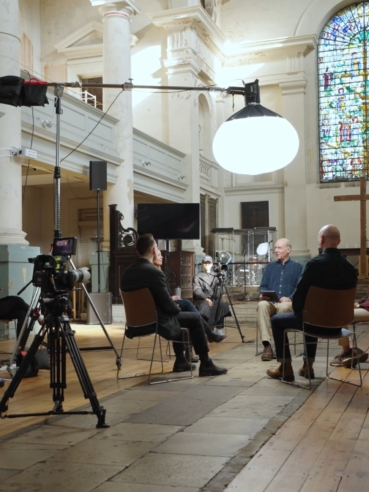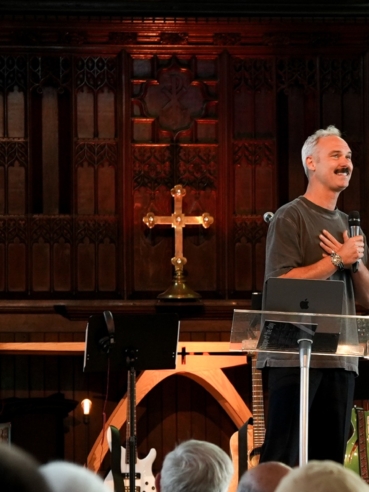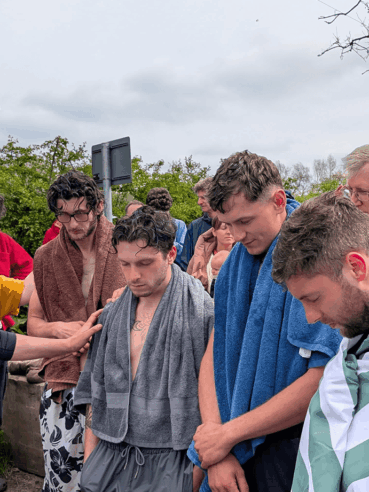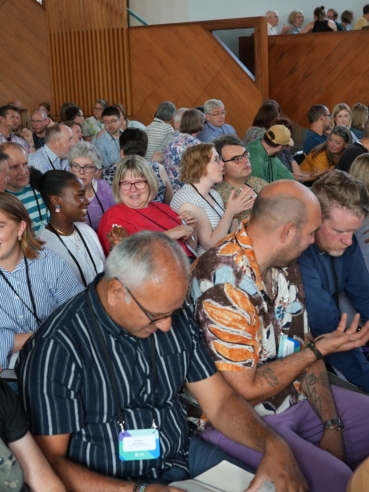In the urban estates something remarkable is happening. Communities often overlooked are revealing profound truths about authentic discipleship that the wider Church would do well to embrace. What might we learn from these vibrant expressions of faith?
Authenticity Trumps Perfection
Estate ministries thrive when they abandon polished performances for raw authenticity. In communities where life’s struggles are visible rather than hidden, discipleship takes on a refreshing honesty. People don’t need another space where they must pretend; they need genuine relationships where transformation can happen. People on our estate can spot fakery a mile off. When we stop trying to appear perfect and start sharing our own struggles alongside Scripture, people always start to genuinely engage with Jesus.
The wider Church can learn to create spaces where masks can be removed and real discipleship – messy and beautiful – can flourish.
Alongside this, estate discipleship often emphasises practical application over theological abstractions. When faith speaks directly to daily challenges – managing limited resources, navigating complex family dynamics, finding hope amid struggle, people see its relevance.
Churches everywhere might consider how their discipleship connects God’s Word with Monday morning realities.
Relationships before programmes
Successful estate ministries recognise that programmes don’t make disciples – people do. Meaningful relationships form the foundation for spiritual growth, often developed through informal gatherings around kitchen tables rather than structured church programmes.
I would recognise that our breakthrough came when we stopped trying to get people into our building and started being present in their spaces. Discipleship happens in conversations at the school gate, AA meetings or over cups of tea in the local ‘caf’.
We need to reflect on how we might reconsider whether our structures facilitate or hinder relationship-building as the primary vehicle for disciple-making.
Keep it simple and reproducible
Estate ministries have discovered the power of simplicity in discipleship. When faith concepts are distilled to their essence and presented in memorable, repeatable ways, they take root and spread naturally throughout communities. This ‘sticky’ approach uses everyday language, memorable phrases, and simple practices that anyone can pass on. We talk about discipleship as ‘Loving and obeying God with your HEAD, HANDS and HEART’. This simple phrase Head, Hands and Heart, then gets outworked in our kids, youth, Sunday sermons and midweek groups. If people can’t remember it then it will not become reproducible.
The wider Church might reflect on whether its discipleship approaches are too complex to be reproduced by ordinary believers. When discipleship materials require theological training to understand or specialised resources to implement, the growth of God’s kingdom becomes unnecessarily limited.
Everyone has something to offer
Estate ministries demonstrate how empowering everyone to contribute – regardless of education, background, or experience – creates vibrant discipleship. When churches move beyond professional clergy as the sole spiritual leaders, unexpected gifts emerge.
Katie, who came to faith through an estate church, now leads a thriving recovery and discipleship ministry. “I never thought someone like me could teach others about Jesus,” she shares. “But my experiences actually help others relate to God’s story.” Churches across contexts might ask: Are we recognising the discipleship potential in every individual? On the estate we have to pull people in quickly and get them involved. Which means discipleship has to have a rough and ready approach within what are often messy lives.
Grace in action speaks loudest
Perhaps the most powerful lesson from estate ministries is the transformative impact of tangible grace. When churches demonstrate God’s love through practical care alongside spiritual guidance, people experience the gospel in its fullness. But there is a lesson around the need to work with people where they are at, and model grace in terms of picking them back up when it all falls apart and embracing them with a culture of ‘no judgement here’. They will need things explained many and multiple times. A disciple isn’t someone who gets it right first time, and as we see from St Peter, they may need picking up regularly as they grow.
The wider Church can remember that discipleship happens most powerfully when we embody the grace we proclaim. Think of discipleship not as a straight line but a spiral going upwards. We will often have ‘relapse’ or ‘wandering off the path’ but the question is can we get people back on discipleship quicker than last time through modeling grace.













